Ghana Has A Documented History of Selling & Trading Africans Into Slavery, Why Are They Asking For Reparations?
Every year at the same time Ghana's President Akufo-Addo asks for reparations yet they sold Africans into slavery

Wednesday, 16 August 2023
By: TB Obwoge
Ghana's 'Year of Return', where 200, handpicked Black Americans were given citizenship they paid a lot of money for was a scam. Not all Black Americans were offered a chance, as a matter of fact many who I have talked with were not even able to get assistance. Out of the 200 that day only 120 actually obtained their citizenship, for some reason 60 didn't.
One man from New York City, who has a twenty year history of living in Ghana was one of those people. For two years he was baited to come back to the country to, or to give more money so that he could actually obtain his citizenship from Ghana. This is why I label this a scam.
If Black Americans running NGO's and having businesses in the country were excluded then it is a shame. One woman living in Ho, Ghana is works like a slave teaching special needs adults and children in Ghana wasn't chosen this is a sin.

Ghana has a long history of selling off people into the slave trade, for some reason they think only to blame white people. Why are they not blaming their ancestors, leaders and tribal chiefs?
They are not apparently teaching history in Ghana and I have obtained PDF copies of their educational curriculum as well.

Ghana's Active Role In Selling Africans Into Slavery
When descendants of the DeWolf slave-trading family of Bristol, Rhode Island retrace the triangle trade of their ancestors in our documentary, Traces of the Trade, they visit the European slave forts of Cape Coast Castle and St. George’s Castle (Elmina). These sites were chosen because the DeWolf family traded extensively for slaves along the Gold Coast, and their most common stops were at slave forts in what is now modern-day Ghana.
In fact, for almost 150 years, Ghana, on Africa’s west coast, was the center of the British slave trade. Western traders arrived in ships loaded with manufactured goods to barter or trade for slaves. Those who were sold had often been captured in tribal warfare; some had simply been kidnapped to sell to European slave traders.
Slavery existed in Africa prior to the transatlantic trade, and in fact the earlier, trans-Saharan slave trade sent more enslaved Africans east to the Muslim world, over many centuries, than would be transported west to the Americas. However, the large-scale organization of European slave trading and the development of industry and massive plantations dependent on slave labor gave rise to a trade in humans that was staggering in its scale. Approximately 10 million enslaved people were transported in the transatlantic slave trade, at rates of up to 100,000 persons per year.
The remnants of the trade in Ghana are still visible today — in dozens of forts and castles built by Europeans between 1482 and 1786. American traders did business at trading posts run by the British, French, Dutch, Germans, Spanish, Portuguese, and others, including Cape Coast Castle and Elmina Castle, which the DeWolf descendants visited in Ghana. Many of these sites have been preserved, and attract thousands of visitors as part of the Slave Route Project of the United Nations Educational, Scientific and Cultural Organization (UNESCO). In addition to preservation efforts, Ghana has also made efforts to encourage descendants of enslaved Africans to learn more about their history. Descendants may be eligible for special visas, and the government has instituted programs to encourage Ghanaians to welcome people from the African Diaspora.

Modern Day Hatred In Ghana Today Is Alive And Well Towards Black Americans
I have lived in the hatred of Ghana today, they all scream how welcoming they are in Ghana but aren't all that way. Much of the people that I lived with and around were not wealthy, educated and affluent Ghanians.
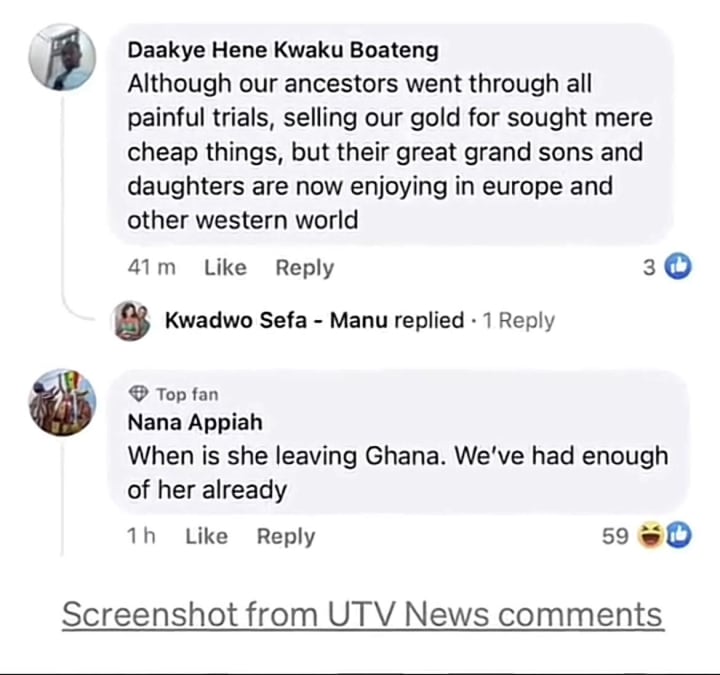
No, I didn't live in the segregated areas of Ghana, where it seems many Black Americans lived. Most Ghanians have a hatred and mistrust for Black Americans, Hell most mistrust and hate even their own West African brothers and sisters.
The colorism is a prime example of their hatred for one another, no matter dark or light skinned.
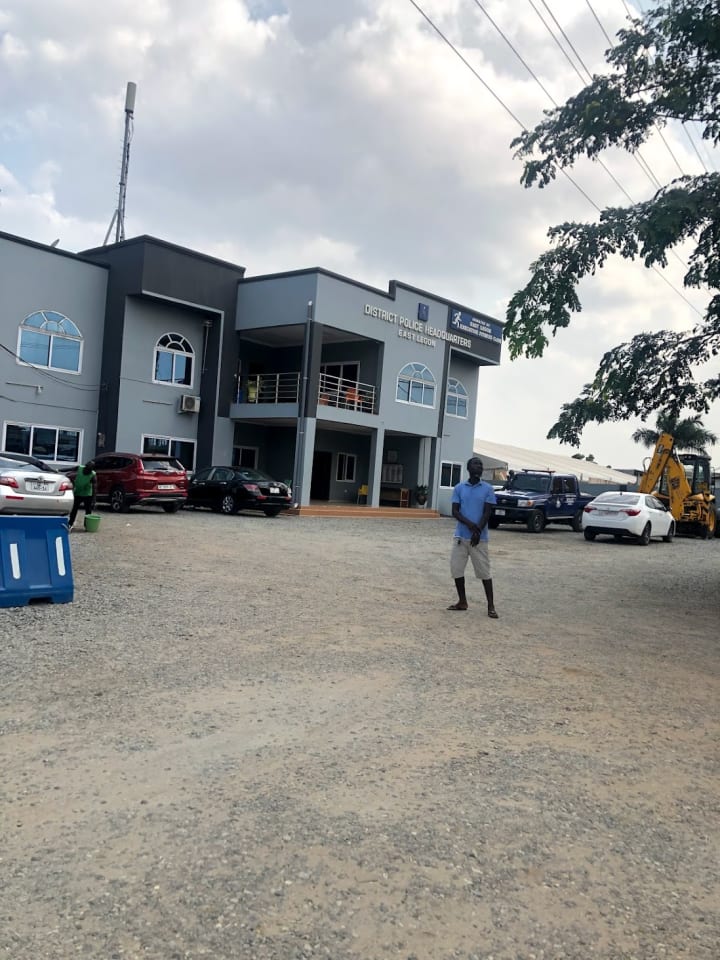
From having my identity stolen, to racism from Ghanians refusing to consider me Black, refusing me services, being kicked out of an Bolt riders car, to having my food thrown on the ground because the driver thought I was a white woman, then threatened to beat me.
I was sexually assaulted by a police officer in Ghana, where I reported it to the police who them ignored my report. I reported several Ghanians to the police and they didn't do anything. From robbery, to threats to extortion of money, nothing was done.
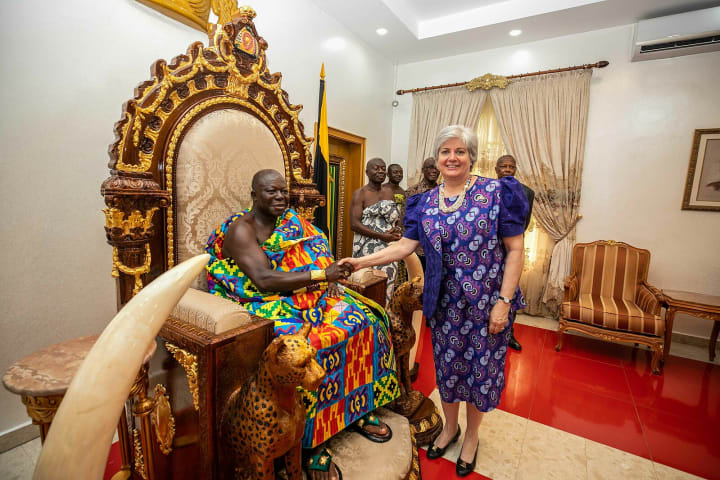
Researchers uncover Africans' part in slavery
From Correspondent Gary Strieker
CAPE COAST, Ghana (CNN) -- For centuries along the West African coast, millions of Africans were sold into slavery and shipped across the Atlantic to the Americas.
The middlemen were European slave traders based in forts like Ghana's Cape Coast Castle, now a tourist attraction and a somber reminder of a brutal crime against humanity.That crime is usually blamed entirely on the European outsiders who inflicted slavery on African victims. But new research by some African scholars supports a different view - - that Africans should share the blame for slavery.
"It was the Africans themselves who were enslaving their fellow Africans, sending them to the coast to be shipped outside," says researcher Akosua Perbi of the University of Ghana. (88K AIFF sound file or 88K WAV sound)
Based on her studies, Perbi says that European slave traders, almost without exception, did not themselves capture slaves. They bought them from other Africans, usually kings or chiefs or wealthy merchants.
The question is, why did Africans sell their own people?
For a thousand years before Europeans arrived in Africa, slaves were commonly sold and taken by caravans north across the Sahara.
"Slavery did exist in Africa," says Irene Odotei of the University of Ghana.
In many African cultures, slavery was an accepted domestic practice, but it was slavery of a different kind. In Africa, the slave usually had rights, protection under law, and social mobility.
"Many house owners would call their slaves as their daughters or sons," says Perbi. "They became part of the kin or family or lineage of the owners." (100K AIFF sound file or 100K WAV sound)
The Atlantic slave trade grew at a time when many African states were at war with each other, taking prisoners that could easily be sold to traders in exchange for guns.
"It's the gun which was a deciding factor in the slave trade -- introduced by Europe," says Odotei.
But while Africans may have sold their own people into slavery, researchers say the kings and chiefs had no idea of the brutality of slavery on the other side of the ocean. If they had, they say, maybe the slave trade across the Atlantic would never have grown so huge, or lasted for so many years.
Sharing the guilt for slavery may be disturbing and painful for Africans, but researchers say their objective is clear.
"They're trying to uncover the facts so that people will take a lesson from the evil of the past and say 'no more,'" says Kwame Arhin of the Institute of African Affairs.gun guy
And there is one thing they insist they are not doing."I'm not trying to shift blame or to make the Europeans feel less guilty," explains Perbi.
For what many believe was the world's greatest crime against humanity, there is more than enough guilt to share.
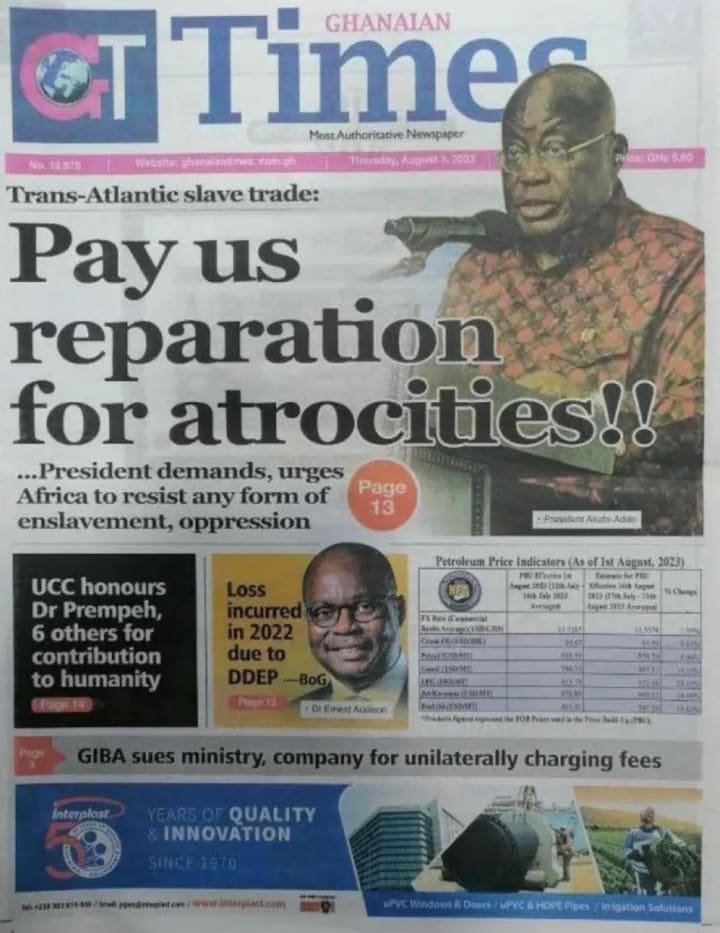
Early European Contact and the Slave Trade
During the heyday of early European competition, slavery was an accepted social institution, and the slave trade overshadowed all other commercial activities on the West African coast. To be sure, slavery and slave trading were already firmly entrenched in many African societies before their contact with Europe. In most situations, men as well as women captured in local warfare became slaves. In general, however, slaves in African communities were often treated as junior members of the society with specific rights, and many were ultimately absorbed into their masters' families as full members. Given traditional methods of agricultural production in Africa, slavery in Africa was quite different from that which existed in the commercial plantation environments of the New World.
Another aspect of the impact of the trans-Atlantic slave trade on Africa concerns the role of African chiefs, Muslim traders, and merchant princes in the trade. Although there is no doubt that local rulers in West Africa engaged in slaving and received certain advantages from it, some scholars have challenged the premise that traditional chiefs in the vicinity of the Gold Coast engaged in wars of expansion for the sole purpose of acquiring slaves for the export market. In the case of Asante, for example, rulers of that kingdom are known to have supplied slaves to both Muslim traders in the north and to Europeans on the coast. Even so, the Asante waged war for purposes other than simply to secure slaves.
They also fought to pacify territories that in theory were under Asante control, to exact tribute payments from subordinate kingdoms, and to secure access to trade routes - particularly those that connected the interior with the coast.
It is important to mention, however, that the supply of slaves to the Gold Coast was entirely in African hands.
Although powerful traditional chiefs, such as the rulers of Asante, Fante, and Ahanta, were known to have engaged in the slave trade, individual African merchants such as John Kabes, John Konny, Thomas Ewusi, and a broker known only as Noi commanded large bands of armed men, many of them slaves, and engaged in various forms of commercial activities with the Europeans on the coast.
Read the lies, they're saying that Ghanians and other Africans treated their enslaved good, they were loved and they let them become part of their families.
If you believe this you are a moron, plain and simple, there is no way Africans were treating their "slaves" as if they were family, why would you buy family and force them to work for free?

Today even a Ghanian blamed slavery on the western nations, she's clearly not ever read any of her history in Ghana.
©️TB Obwoge 2023 All Rights Reserved
About the Creator
IwriteMywrongs
I'm the president of a nonprofit. I've lived in 3 countries, I love to travel, take photos and help children and women around the world! One day I pray an end to Child Marriages, Rape and a start to equal Education for ALL children 🙏🏽
Enjoyed the story? Support the Creator.
Subscribe for free to receive all their stories in your feed. You could also pledge your support or give them a one-off tip, letting them know you appreciate their work.


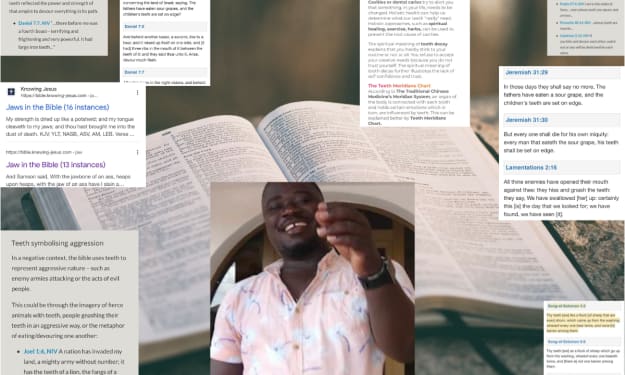



Comments
There are no comments for this story
Be the first to respond and start the conversation.